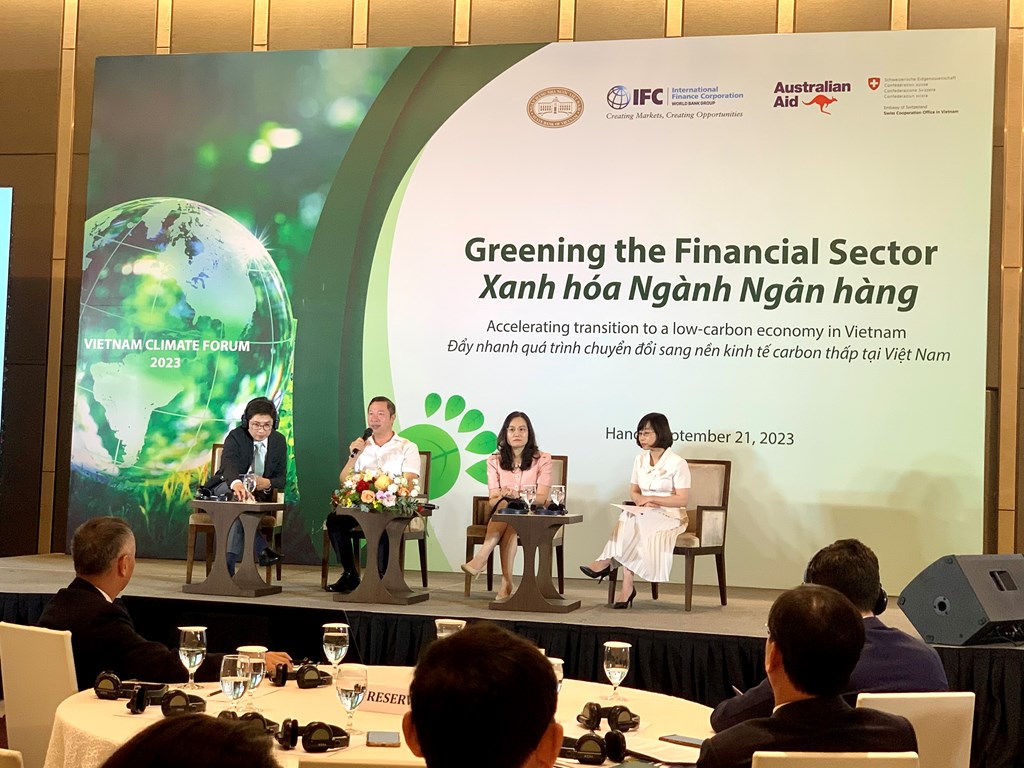HCMC — The International Finance Corporation (IFC) has estimated that Vietnam’s climate finance demands could reach US$757 billion by 2030.
This huge investment for climate adaptation projects encompasses sectors such as renewable energy, green construction, energy efficiency, and transportation, according to Allen Forlemu, IFC’s regional director of Financial Institutions for the Asia-Pacific.
He spoke at a forum co-held by the IFC and the State Bank of Vietnam on September 21, focusing on the theme “Greening the financial sector: Accelerating the transition to a low-carbon economy in Vietnam.”
Banks and the financial sector are expected to play a pivotal role in scaling up climate financing, said Forlemu, adding a shift towards sustainable operations in the banking sector is crucial for supporting the journey towards a low-carbon economy.
Vietnam has historically had low greenhouse gas emissions but has witnessed the fastest increase in emissions globally over the last two decades. Despite accounting for less than 0.8% of global emissions, the country emitted 364 million tons of CO2 in 2018.
As Vietnam’s economy continues to grow, its energy usage will rise, inevitably leading to an increase in greenhouse gas emissions.
This uptick comes at a time when the disruptive effects of climate change are already taking a toll on the country’s economy, posing a growing risk to its future prosperity.
The situation highlights the critical need—and opportunity—for financial institutions to engage in Vietnam’s emerging climate finance sector. The Southeast Asian country suffered US$10 billion in losses due to climate change in 2020, equivalent to 3.2% of its GDP, according to recent data from the Country Environmental Analysis (CEA).
Pham Thanh Ha, deputy governor of the State Bank of Vietnam, stressed the urgency for the country to meet environmental targets and viewed this as imperative for businesses and all sectors.
The Government has rolled out various policies, strategies, and plans for sustainable environmental development. These include the Vietnam Green Growth Strategy (VGGS) and related action plans, as well as commitments under the country’s National Determined Contributions (NDCs) and Sustainable Development Goals (SDGs).









